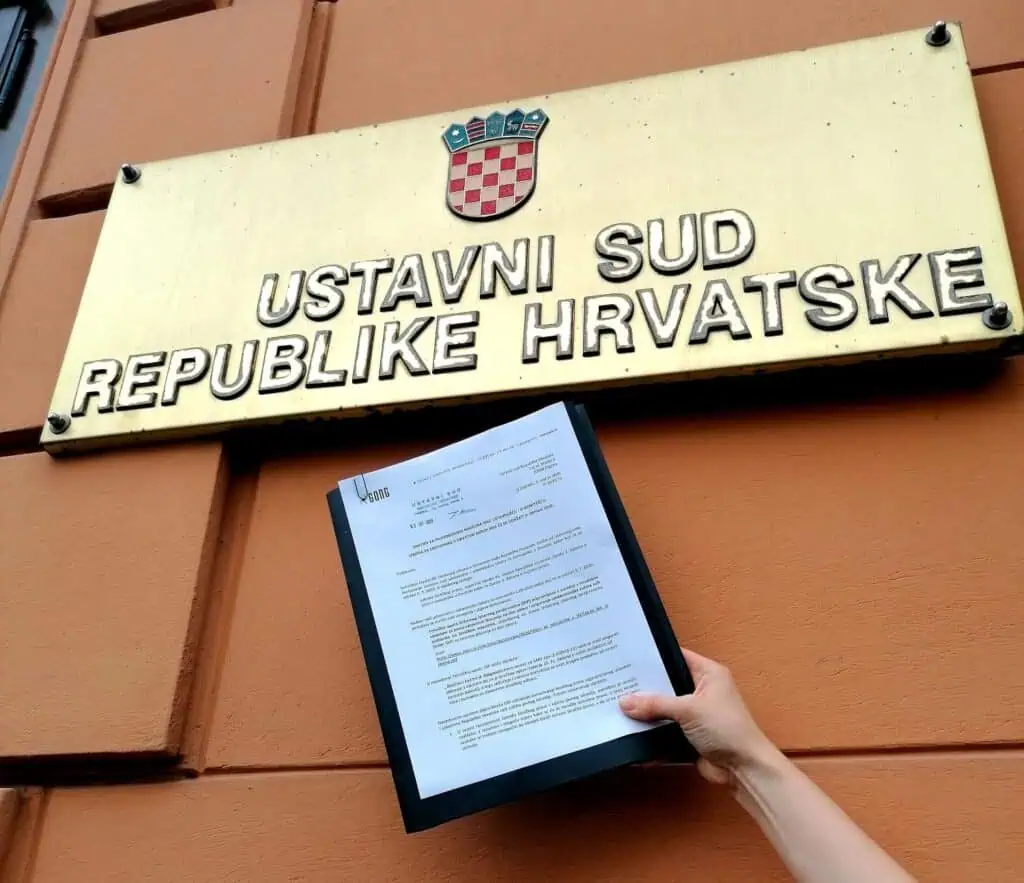
Gong called on the Constitutional Court to review the constitutionality of the provision of the Act on Elections of Representatives to the Croatian Parliament that prevents individual voters from filing complaints with the State Election Commission in the event of electoral irregularities. This legal gap is particularly evident when voters discover they have been marked as having voted in the register at polling stations, leaving them without legal recourse to protect their constitutionally guaranteed right to vote.
Although the law provides for the possibility of filing complaints due to electoral irregularities, this possibility is reserved for political parties, candidates, and groups of at least 100 voters or 5 percent of the voters of an electoral district. An individual voter does not have the right to file a complaint independently, regardless of the seriousness of the violation of his or her voting rights.
The constitutional principle of electoral equality implies that each voter participating in an election should have approximately the same influence on its outcome. Although often summarized by the formula “one person – one vote,” the mere fact that every voter has one vote is not sufficient to achieve true equality. Electoral equality refers not only to the weight of the vote, but also to access to legal protection — that is, the ability of every voter to seek a legal remedy within the electoral process.
This omission of the legislator is particularly visible in the case of a voter who is informed at the polling station by the polling station committee that he has already been marked as having voted. Despite Gong's repeated warnings to the SEC to prescribe clear instructions to resolve this problem, the marked voter still depends on the decision of the competent election commission on how to proceed in such a case, while avoiding excess ballots in the ballot box. There is no possibility of filing a complaint with the SEC, and possibly an appeal to the Constitutional Court.
In 2021, the Constitutional Court rejected the appeal of a marked voter who was not allowed to vote by the competent election commission in the local elections of the same year because she was not authorized to file a complaint. Judges Selanec, Kušan, Abramović, and Arlović disagreed with such a decision and warned about the problem of the lack of legal protection for each voter in the procedure. They emphasized that such a system violates the fundamental principle of equality before the law and creates legal uncertainty.
The guidelines of the Office for Democracy and Human Rights (ODIHR) and the Venice Commission stipulate that every voter must have the possibility to complain in case of violation of electoral rights, and that the authorities must decide on such complaints quickly. In some European countries, such as Slovenia, Germany, the Czech Republic, and Poland, individual voters also have the right to a legal remedy in the electoral process.
Individual voters cannot complain in local, presidential, or European elections in Croatia. Since the SEC has prepared a draft of a unified electoral code that should be discussed in 2026, Gong warns that it is necessary, before the code enters into force, to ensure the protection of the constitutionally guaranteed right of each voter.
